Search
Search Results
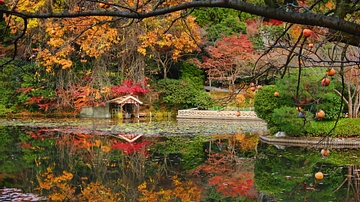
Image
Pond Garden, Ryoanji
The pond garden of Ryoanji, a Zen Buddhist temple in Kyoto, Japan, founded in 1473 CE.

Image
Madonna di Piazza by Andrea del Verrocchio
Madonna di Piazza, tempera on panel by Andrea del Verrocchio, 1474-1483.
Cattedrale di San Zen, Pistoia
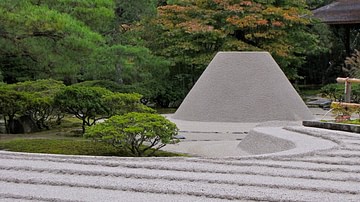
Image
Sea of Silvery Sand, Ginkaku-ji
The Sea of Silvery Sand (Ginsha-nada) which replicates the outline of the West Lake in China and the small lunar viewing platform (Kogetsudai) made of sand. The Zen temple complex Ginkaku-ji, Kyoto, Japan. Late 15th century CE.

Definition
Gnosticism
Gnosticism is the belief that human beings contain a piece of God (the highest good or a divine spark) within themselves, which has fallen from the immaterial world into the bodies of humans. All physical matter is subject to decay, rotting...
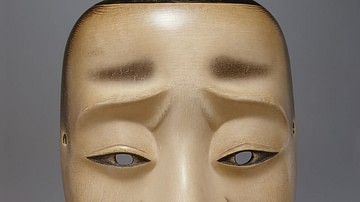
Definition
Noh Theatre
Noh (Nō) theatre is a Japanese performance art which became especially popular from the 14th century CE and which is still performed today. Noh actors, who were always male in the medieval period, famously move and make gestures in a very...
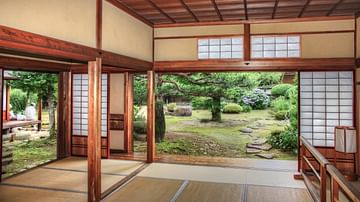
Article
A Traditional Japanese House
The traditional house of ancient and medieval Japan (1185-1606 CE) is one of the most distinctive contributions that country has made to world architecture. While the rich and powerful might have lived in castles and villas, and the poor...

Article
Ancient History Encyclopedia in Japan
The “Ancient Japan” initiative at Ancient History Encyclopedia arose as there is a dearth of open access and digitally curated information concerning early Japanese history available online and in English. East and Southeast Asia are arguably...

Article
Religious Developments in Ancient India
For well over 1,000 years, sacred stories and heroic epics have made up the mythology of Hinduism. Nothing in these complex yet colourful legends is fixed and firm. Pulsing with creation, destruction, love, and war, it shifts and changes...
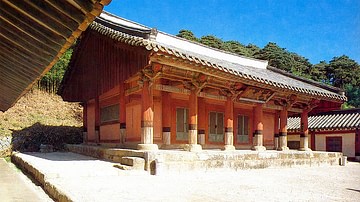
Article
Confucianism in Ancient Korea
Principles of Confucianism were adopted by successive dynasties and kingdoms in ancient Korea, and the study of classic Confucian texts was an important part of education and entrance examinations for the state administration. Confucianism...

Definition
Shinto
Shinto means 'way of the gods' and it is the oldest religion in Japan. Shinto's key concepts include purity, harmony, family respect, and subordination of the individual before the group. The faith has no founder or prophets and there is...